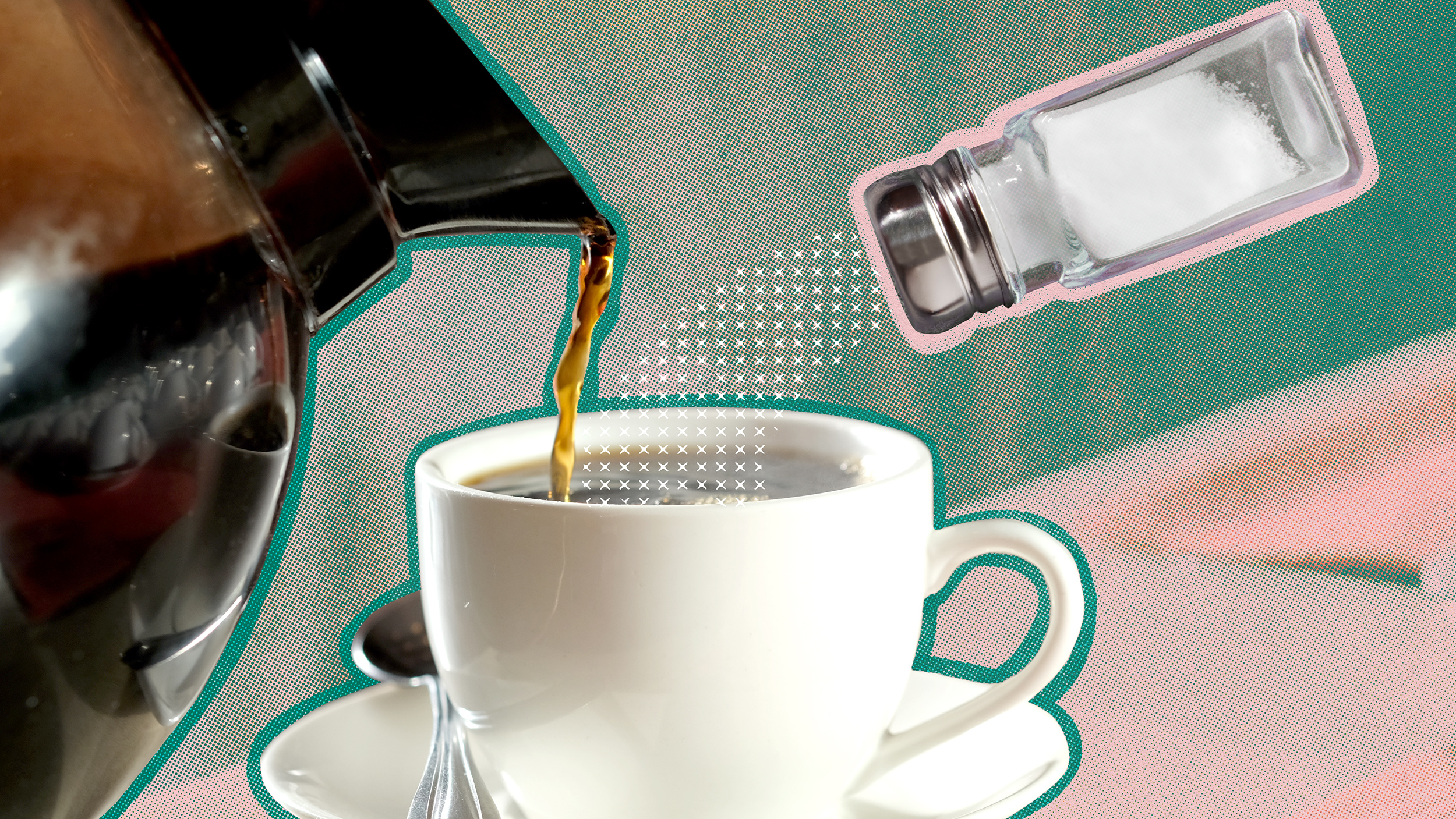Why Do Some People Salt Their Coffee?
I am not anti-coffee hack. I love a good coffee hack. So I was surprised that it took me until this year to hear about an apparently long-standing practice some people swear improves their coffee: putting salt in it.
No less than Alton Brown recommends the practice of adding salt either to your grounds or to a brewed cup, claiming it will "cut the bitterness of coffee, [and] it also smooths out the 'stale' taste of tank-stored water." He recommends adding only a pinch of salt, not enough to imbue your morning cup with any noticeable salinity. The premise is that salt, even more than sweetness, tempers bitterness. (The precise mechanics of this are still mysterious.) But that's about as far as most salting-coffee articles go: They claim some people enjoy it, but they're scant on scientific explanation or sensory analysis as to why this happens. I tried it myself, and can't say I noticed much difference in the flavor or bitterness of my coffee, either black or, as I usually take it, with a splash of cream.
Is the salting-your-coffee trick overblown?
"I personally have not looked into this directly but I am a lover of salt and I could imagine that there could be something where that changes your perception of bitterness," says Tonya Kuhl, a professor of chemical engineering at the University Of California Davis and co-director of UC Davis' Coffee Center. She tells me that the small percentage of the population who are so-called "super-tasters" are especially sensitive to bitterness. They might find a perceptible shift in the bitterness of their coffee by adding salt, "but for the vast majority of people, it wouldn't matter to us."
Even if a person could notice salt's mitigating effects on coffee bitterness, is that desirable? It's difficult to pin down an exact definition of bitterness as it relates to coffee; some people might describe a dark roasty flavor as bitter, while others might mistake acidity for bitterness. I enjoy all those sensations and flavors in my coffee: a bit of dark roast, some light acidity, some balancing sweetness. To me, a somewhat "bitter," roasty character—at proper levels—is not an undesirable portion of coffee. (If it was, I'd probably already be one of those people who takes her coffee with four tablespoons of cookie-flavored creamer.)
Spencer Turer, a quality expert at Coffee Enterprises, a coffee consulting and analysis firm, is skeptical of any attempts to mess too much with a properly brewed cup.
"If you're buying good coffee and you have a good roaster, you're not going to get the bitterness you need the salt for," he tells me. "It goes back to the days when the quality of coffee wasn't that good; maybe [a roaster] is using robusta in the blend and it's not all arabica and you're looking to cut the bitterness."
He notes that caffeine is itself a bitter compound, an alkaloid, which means that coffee beans will always naturally contain that. (Unless the beans are—I say this with a small shudder—decaf).
"If you're buying good coffee from a specialty, quality coffee roaster, and if you're using the right equipment, coffee can be delicious—savory and sweet and all that without anything—without salt, sweetness, additives, or creamer."
Buy good beans, store them well, brew your cup properly, and you probably have little need for that extra salt in your diet. And if you're experiencing "stale tank water" as Alton Brown described, I have an even simpler solution: Use fresh water to brew your coffee every day.
